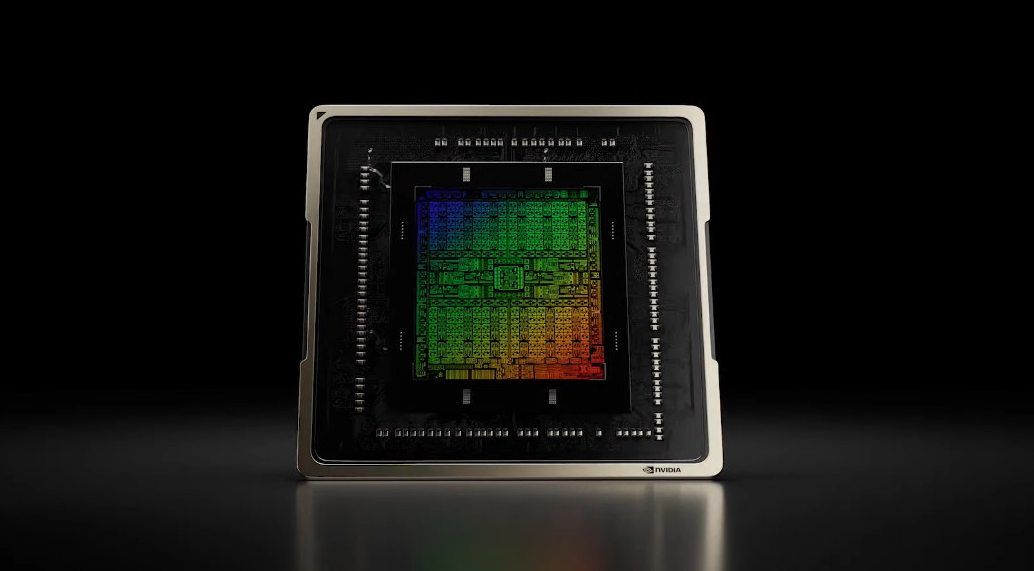
The launch of Nvidia’s next-generation graphics cards is a long way off, perhaps as much as two years away. There’s a lot of time for Nvidia to chop and change whatever GPU ends up powering the hypothetically named RTX 50-series. The rumor mill never stops, though.
The latest nugget of info to surface comes from Kopite7kimi, a usually reliable source of Nvidia information. They speculate that the flagship Nvidia RTX 50 card, presumably named the RTX 5090, will have a 512-bit memory bus. That’s something we can all appreciate given we had cards with 512-bit buses going back well over a decade.
Combined with multiple sources, I confirm the gaming flagship of Ada-next will have a 512-bit memory interface.July 27, 2023
Electrical complexities and manufacturing expenses are often cited as reasons to adopt a narrower bus, but if a card like the RTX 4090 at $1,599 doesn’t justify a 512-bit bus, what will? Following that line of thinking makes me shudder at the thought of what an RTX 5090 will cost.
In the case of modern GPUs, ever increasing GDDR6 and GDDR6X speeds have lessened the need for a wide memory bus. If we take the RTX 4090 as an example, it includes 24GB of GDDR6X memory at 21Gbps, giving it a maximum bandwidth of 1,008GB/s. The RTX 3090 Ti had the same configuration, meaning we didn’t see any gen-on-gen bandwidth improvement, despite the huge uplift in overall performance.
A 512-bit bus width paired with 21Gbps memory would result in 1,344 GB/s of bandwidth. That’s a nice 33% increase over the RTX 4090 right there. But 21Gbps memory is so 2022. We’ve got GDDR7 to look forward to.
If Nvidia was to equip the RTX 5090 with 32Gbps GDDR7 with a 512-bit bus, we’d be looking at over 2TB/s of bandwidth, double that of the RTX 4090. That opens up speculation about why Nvidia would feel the need to increase memory bandwidth by that much. If 8K gaming ever takes off, this is the card that will lead the charge. It’s an exciting prospect, though surely an expensive one.
Should Nvidia choose to include a 512-bit bus in its next gen flagship, it should bode well for the cheaper cards in the range too. One of the major criticisms of the RTX 4070 and RTX 4070 Ti, and particularly the RTX 4060 Ti is their narrow bus widths. An upgrade to 192-bit and 256-bit buses for xx60 and xx70 cards respectively would be welcome.
The move to a 512-bit bus opens up the possibility of some interesting memory configurations. The RTX 3090/TI and RTX 4090 all come with 24GB of memory, so with a 512-bit bus, cards with 32GB of memory become a distinct possibility.
Start saving folks. A hypothetical RTX 5090 with 32GB of GDDR7 memory and a 512-bit bus could make a $1,599 RTX 4090 look like a Best Buy bargain bin special. At least you’ll have a long time to fill up the piggy bank.
- SEO Powered Content & PR Distribution. Get Amplified Today.
- PlatoData.Network Vertical Generative Ai. Empower Yourself. Access Here.
- PlatoAiStream. Web3 Intelligence. Knowledge Amplified. Access Here.
- PlatoESG. Automotive / EVs, Carbon, CleanTech, Energy, Environment, Solar, Waste Management. Access Here.
- BlockOffsets. Modernizing Environmental Offset Ownership. Access Here.
- Source: https://www.pcgamer.com/nvidias-next-gen-flagship-rumored-to-receive-a-huge-bandwidth-increase-thanks-to-a-512-bit-memory-bus
- 1
- 2022
- 27
- 50
- 7
- 8k
- a
- About
- adopt
- All
- an
- and
- any
- appreciate
- ARE
- as
- At
- back
- bandwidth
- Bank
- BE
- become
- BEST
- BIN
- bus
- Buses
- but
- button
- buy
- by
- CAN
- card
- Cards
- case
- change
- charge
- choose
- cited
- come
- comes
- configuration
- cost
- could
- decade
- despite
- distinct
- doesn
- double
- ends
- EVER
- Example
- Exciting
- expenses
- expensive
- feel
- flagship
- Following
- For
- Forward
- from
- Gaming
- given
- Giving
- going
- GPU
- graphics
- had
- Have
- HTTPS
- huge
- i
- if
- improvement
- in
- include
- includes
- Increase
- increasing
- info
- information
- interesting
- interface
- Is
- IT
- ITS
- latest
- launch
- lead
- least
- like
- Line
- ll
- Long
- Look
- looking
- lot
- major
- make
- MAKES
- manufacturing
- maximum
- me
- meaning
- memory
- Modern
- more
- move
- much
- multiple
- named
- narrow
- need
- never
- Next
- Next-generation
- Nice
- nvidia
- of
- off
- often
- One
- opens
- over
- overall
- particularly
- performance
- perhaps
- Piggy
- plato
- plato data intelligence
- platodata
- platogaming
- possibility
- prospect
- range
- reasons
- receive
- reliable
- result
- right
- Rumor
- s
- same
- saving
- seasonal
- see
- should
- So
- some
- something
- source
- sources
- special
- stops
- Surface
- Take
- takes
- thanks
- that
- The
- their
- there
- they
- Thinking
- this
- though
- thought
- time
- to
- too
- up
- upgrade
- usually
- ve
- was
- way
- we
- welcome
- well
- What
- whatever
- why
- wide
- will
- with
- would
- years
- you
- zephyrnet









